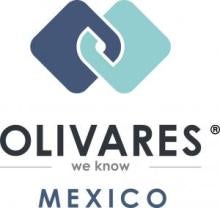On March 10, 2021, a press release was published in several media, that is, a statement of the national cinematographic and audiovisual community regarding the initiative of the “Federal Law of Cinematography and Audiovisual” presented by Senator Ricardo Monreal Avila.
In said statement, it is considered that Senator Ricardo Monreal’s initiative is a first step in the right direction, by establishing a minimum percentage of national content in order to protect hundreds of thousands of jobs, preserve artistic and cultural sovereignty, and to ensure that Mexico continues to be a world reference in high quality productions, great directors, producers, photographers, creatives, musicians and screenwriters.
For better reference the main advances of the initiative are:
-
It guarantees audiences access to culture, taking into account the diversity and cultural plurality of the Nation; it also specifies a chapter referring to the right and training of audiences.
-
Adjusts the scope of the existing law, extending it to include other audiovisual works.
-
Creates a glossary, which advances in the definition of the particularities of the film industry, for a better understanding and operation of the law.
-
Establishes rules for the exhibition of cinematographic works, such as the obligation to be exhibited in their original language and the definition of the cases and percentage in which they may be dubbed, which is adapted to benefit the plurality and diversity of the cinematographic offer
-
It generates greater certainty regarding compliance with the screen quota for the exhibition of national works, with the establishment of clear sanctions in case of non-compliance. It also establishes non-concentration, which will guarantee diversity, plurality and equitable access to audiovisual content.
-
It establishes that the Mexican Institute of Cinematography (IMCINE) will be in charge of fostering and promoting national cinematography.
This is due to the fact that the film and audiovisual production companies, as well as their unions, distanced themselves from the position previously taken by the a Mexican Business Chamber (the CCE), said rupture was due to the fact that national producers state that they agree with the minimum quota for both cinemas (exhibitors) and streaming platforms (read: Netflix, Disney +, HBO, Amazon Prime, Claro, Izzi), to transmit fifteen (15%) of the content produced in Mexico.
José Manuel Santin also contributed to this article.







 />i
/>i

